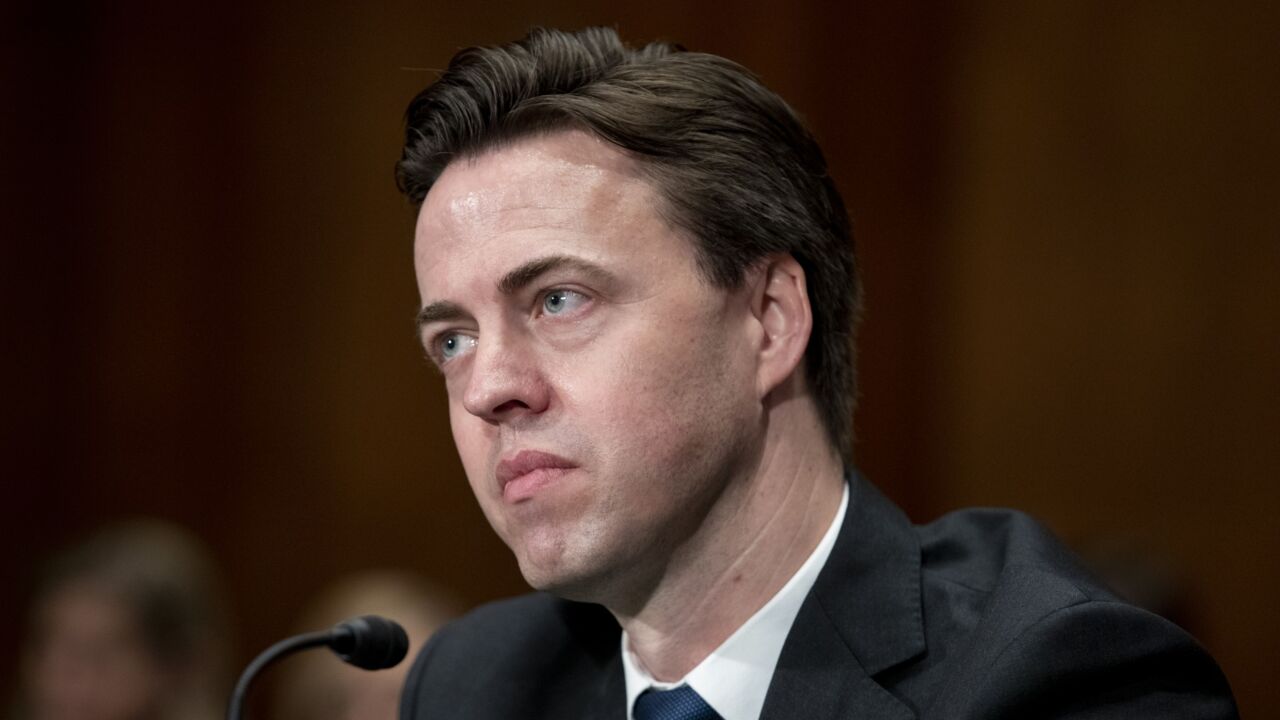In a U.S. robo advice market burgeoning with new entrants from startups to wirehouses, the latest newcomer isn't even an American firm. Wealthsimple, a Canadian robo advisor, plans to serve U.S. clients — from Toronto.
"It does show there's no barrier to entry anymore to automated investing in the U.S.," says Bill Winterberg, founder of the fintech blog FPPad. "The U.S. market is the best in the world to introduce an automated investment solution."
Wealthsimple is backed by Montreal-based Power Financial, which last year
The company is planning to release the American version of Wealthsimple soon, which would make it the first foreign-based robo pursuing U.S. clients.
Wealthsimple received approval from the SEC to operate as an investment advisor in October, according to a Form ADV filing.

An email sent Jan. 18 to friends and family members of the company's employees said the robo advisor plans to launch its American offering this month, though no date is given.
The email notes that in keeping with its Canadian offering, there are no account minimums. For friends and family, the first $10,000 invested will be fee-free with any amount above $10,000 subject to its 0.5% management fee.
Investors who can put in $100,000 are eligible for Wealthsimple Black, its newly launched service that features 0.4% fees, planning and tax advice and even a complimentary airport VIP lounge membership.
Ordinarily, Wealthsimple offers new clients the first $5,000 invested free; nor does it charge for trades or account rebalancing.
Wealthsimple spokeswoman Rachael Factor acknowledged its U.S. offering was in beta, but she declined to give a specific introduction date for the platform's service in the U.S.
On its website, Wealthsimple is advertising for "relationship managers" who would be "subject matter experts in the U.S. investment space, remotely serving our American clients from our Toronto office location." Among requirements, new hires would have to have Series 7 and 63 licenses.
The firm, which currently has roughly $600 million in assets under management, has a New York office and says it is opening a London office.
There's an obvious benefit in pursuing American clients, says Will Trout, senior wealth management analyst at the consulting firm Celent.
"The Canadian market is one-tenth the size" of the U.S. market. "That’s why they remain in the hundreds of millions of AUM to date," Trout says. "Their fees are reasonable by Canadian standards but will have to be dialed down for the U.S., meaning even slimmer margins."
PERSONAL CAPITAL CONNECTION
Industry observers say Wealthsimple is a small play for Power Financial, which has ownership of a number of financial firms, including Putnam Investments. However, they note its investment horizon in a firm is usually over a decade.
They also note the conglomerate, with investments in Personal Capital and Wealthsimple, could attempt a two-pronged approach to the digital advice market, with Personal Capital targeting older, richer investors while Wealthsimple courts millennials.
Trout sees Power Financial driving the decision to expand to the U.S. "Like all asset managers, they want distribution," he says.
When it does launch, Wealthsimple would be contending with the same challenges faced by other providers seeking to gain a slice of the digital advice market, which reached $83 billion at the end of 2016, according to the research firm Cerulli Associates.
"They're entering a very crowded market comprised of the startups that kicked off the robo advice movement and the biggest hybrid brokerage firms that have already launched their own digital advice solutions," says Sean McDermott, senior analyst at Corporate Insight. "This may make it difficult for Wealthsimple to gain significant traction in the U.S."
The company would also face value proposition costs against similar and cheaper services from Wealthfront, Betterment or the digital offerings from Schwab and Vanguard, Winterberg says.
Combined, Vanguard's Personal Advisor Services and Schwab Intelligent Portfolios manage assets of more than $50 billion. Additionally, Schwab recently launched a new hybrid robo offering, Intelligent Advisory, featuring human advice for account minimums of $25,000 and fees capped at $900 a quarter.





